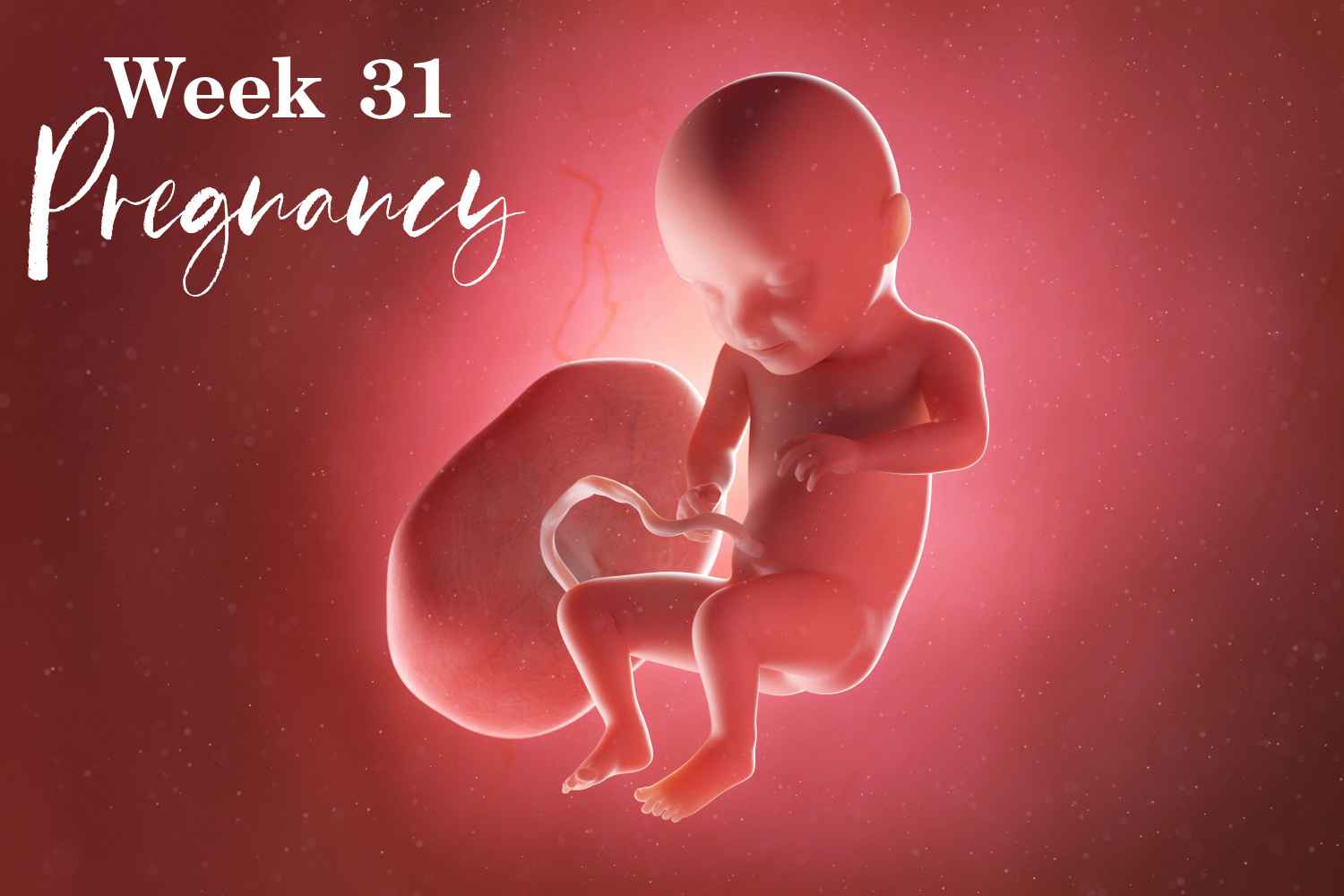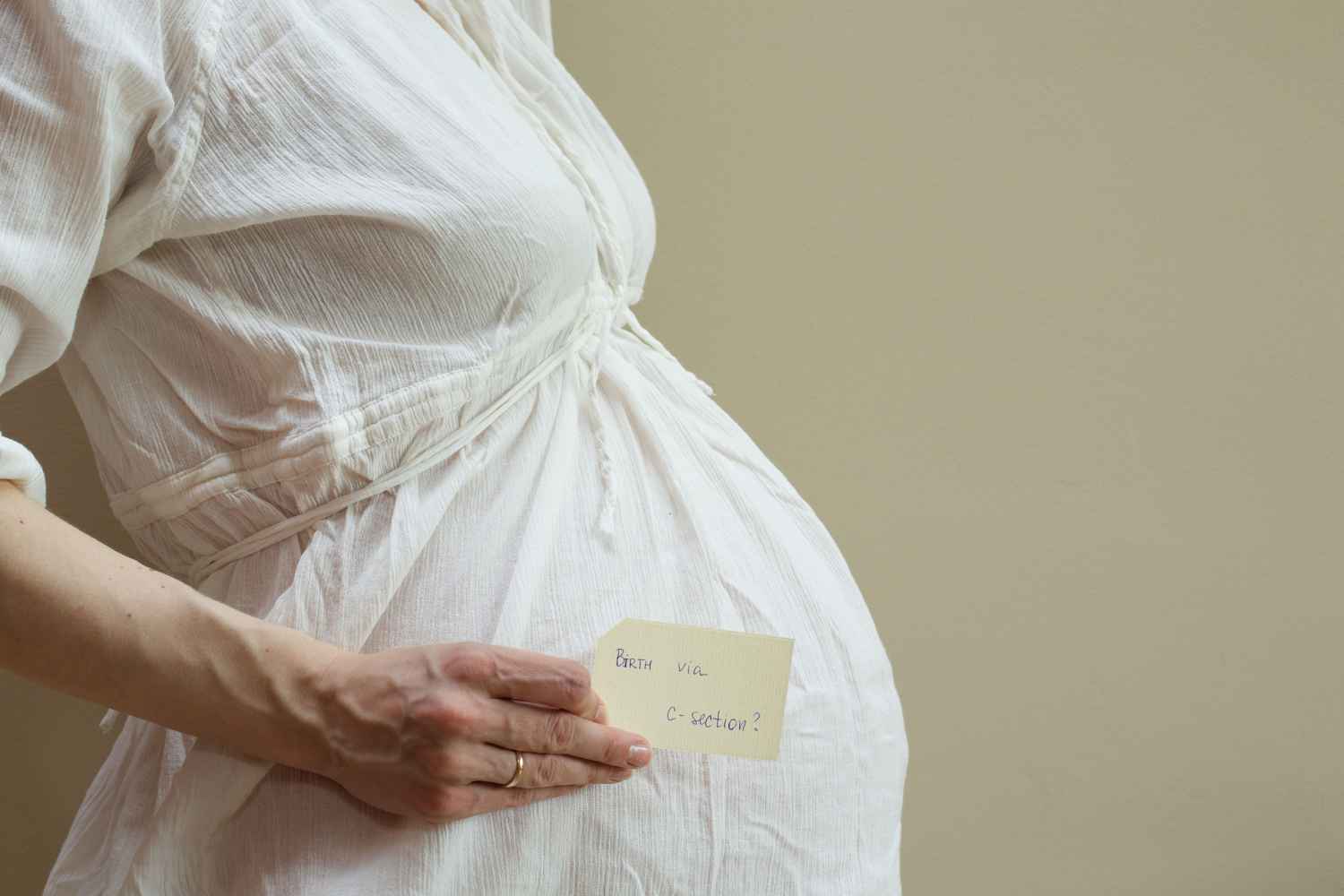
How Does Your Body Change During Week 31 of Pregnancy?
3 min readWritten by Gayathri Lakshminarayanan


Entering the third trimester of pregnancy can bring many physical and emotional changes to a woman’s body. Week 31 of pregnancy is a critical time, and it’s essential to keep track of the body changes and manage them effectively. Remember, your little one keeps growing inside, and your uterus keeps expanding. The baby bump could grow much more. This article will discuss the how does the body change during week 31 of pregnancy and how to manage them. Let us get started.
How Does Your Body Change During Week 31 of Pregnancy?
Here’s what you need to know about the changes in your body during week 31 of pregnancy.
1. Numbness in Hands and Legs
During pregnancy, it is common to experience numbness or tingling sensations in the hands and legs. Thanks to the growing uterus, pressure is put on the nerves, which causes numbness. This condition is also called carpal tunnel syndrome and usually occurs in the second and third trimesters. In some cases, it may persist even after delivery.
What to do?
- To manage numbness in hands and legs, try to keep them elevated as much as possible.
- You can also try some exercises to keep your hands and legs active.
- Avoid tight clothing, which can restrict blood flow and aggravate the numbness.
- If the numbness persists, consult your doctor for further evaluation.
2. Shortness of Breath
As your baby grows, your uterus expands, which puts pressure on your diaphragm, which makes it difficult for you to breathe. Shortness of breath is a common symptom in the third trimester, and it usually worsens as you approach delivery.
What to do?
Try to sit upright and avoid lying on your back to manage shortness of breath. You can also practice breathing exercises and use a humidifier to ease your breathing. If shortness of breath persists or is severe, consult your doctor immediately.
3. Disrupted Sleep
Pregnancy can cause sleep disruptions, including insomnia, vivid dreams, and frequent urination. The growing baby’s movements can also make getting comfortable and falling asleep challenging.
What to do?
- To manage disrupted sleep,
- Establish a consistent bedtime routine and create a relaxing environment.
- Avoid caffeine and exercise before bedtime.
- You can also try sleeping on your side, using pregnancy pillows, and practicing relaxation techniques.
4. Leaky Breasts
Your body prepares for breastfeeding during pregnancy, and you may experience leaky breasts. This is a natural process, a sign that your body is getting ready to nourish your baby.
What to do?
To manage leaky breasts,
- Wear breast pads to absorb any leakage.
- You can also try wearing a supportive bra, which can help ease breast tenderness and discomfort.
5. Swelling/Water Retention
As your body prepares for delivery, it retains more water, which can cause swelling in your hands, feet, and face. This condition is called edema, a common symptom in the third trimester.
What to do?
To manage swelling,
- Try to elevate your feet as much as possible and avoid standing or sitting for extended periods.
- Also, wear compression stockings and avoid salty foods, which can worsen the swelling.
6. Urinary Incontinence/Loss of Bladder Control
As your baby grows, it puts pressure on your bladder, which can cause urinary incontinence or loss of bladder control. This can be embarrassing and uncomfortable, but it’s a common symptom in the third trimester.
What to do?
To manage urinary incontinence,
- Empty your bladder frequently and avoid drinking too much fluid before bedtime.
- You can also practice Kegel exercises, strengthening your pelvic floor muscles and improving bladder control.
7. Tiredness
As you approach delivery, you may feel more tired than usual. This is because your body is working hard to prepare for delivery, and the growing baby is putting a strain on your body.
What to do?
To manage tiredness, get plenty of rest and establish a consistent sleep schedule. Taking short naps during the day can also help alleviate fatigue.
8. Other Symptoms
Other symptoms you may experience during week 31 of pregnancy include:
- Gas and bloating
- Hemorrhoids
- Clumsiness
- Pregnancy brain
During week 31 of pregnancy, your body undergoes several changes that can cause discomfort. Numbness, shortness of breath, disrupted sleep, and leaky breasts are some of the common symptoms. However, with proper self-care and management, you can alleviate these symptoms and enjoy a healthy pregnancy.
Remember to listen to your body and consult your healthcare provider for any concerns.
Happy Pregnancy!
Read Also: How Does Your Body Change During Week 32 of Pregnancy?

Gayathri Lakshminarayanan,CA, B.Com
Gayathri’s passion for writing had its foundation at the very early stages of her life when she was on her college editorial board and also won several awards for writing events and book review competitions. She combines her corporate experience with her writing skills and her experience as a homemaker makes her an empathetic contributor in the parenting domain . Her shift from full-time accounting professional to a homemaker gave her career a new direction.Read more.
Responses (0)
Want curated content sharply tailored for your exact stage of parenting?
Related articles

Diastasis Recti in Pregnancy – What is it, Treatment and Top Exercises to Try

Top 8 Third Trimester Essentials During Pregnancy

Planned C-Section – Everything You Need To Know

Top 150 Anime Names for Girls With Meanings

Triphala During Pregnancy – Why You Should Avoid it?

Top 500 Baby Boy Names That Start With B
Sponsored content
Discover great local businesses around you for your kids.
Get regular updates, great recommendations and other right stuff at the right time.





